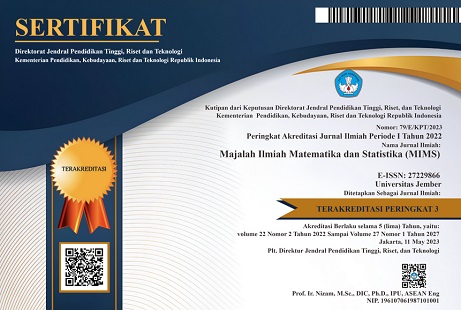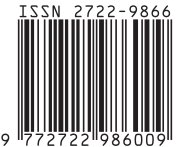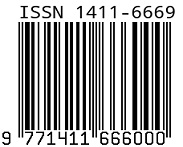Modeling factors affecting poverty in Nusa Tenggara using the multivariate adaptive regression spline (MARS) method
DOI:
https://doi.org/10.19184/mims.v24i2.43167Abstract
Poverty is still a fundamental problem in the economy of various regions or developing countries, including Indonesia. The Nusa Tenggara Islands are one of the regions in Central Indonesia, where East Nusa Tenggara Province is in 3rd place with 20.44%, and West Nusa Tenggara Province is in 8th place with 13.83%, the highest percentage of poor people in Indonesia. A study was conducted to model the factors that influence poverty in Nusa Tenggara and determine the factors that significantly affect the percentage of poverty in Nusa Tenggara. Poverty data caused by many predictor variables that interact with each other can be said to be high-dimensional data where the relationship between the response variable and the predictor variable does not show a specific pattern, so one of the appropriate nonparametric regression methods to use for this approach is the Multivariate Adaptive Regression Spline (MARS) method. The data used in this study is secondary data with 12 predictor variables. The results of this study indicate that the best model was the model with the values of basis function (BF) of 24, maximum interaction (MI) of 2, and minimum observation (MO) of one where this model has the minimum GCV value of 0.3523701.
Keywords: Generalized cross-validation, multivariate adaptive regression spline, Nusa Tenggara Region, poverty
MSC2020: 62G08








